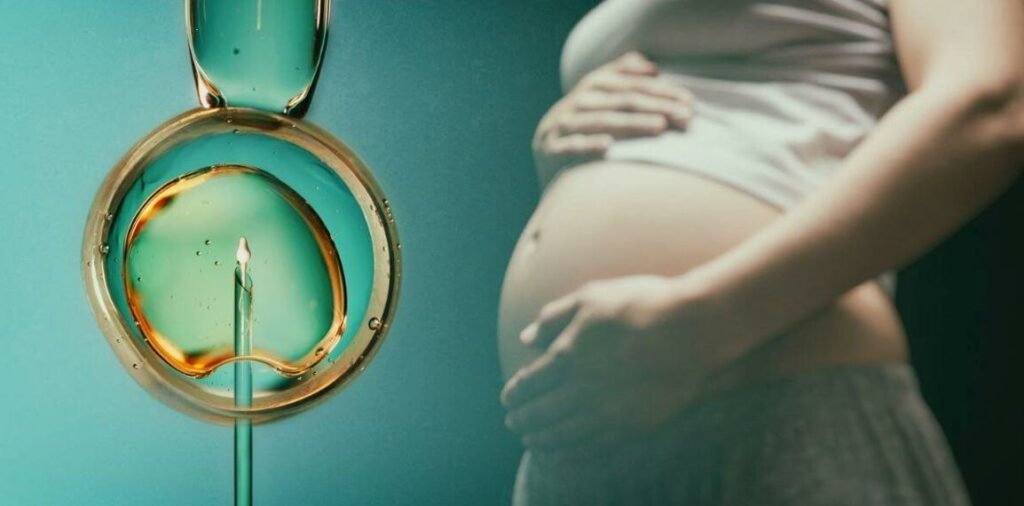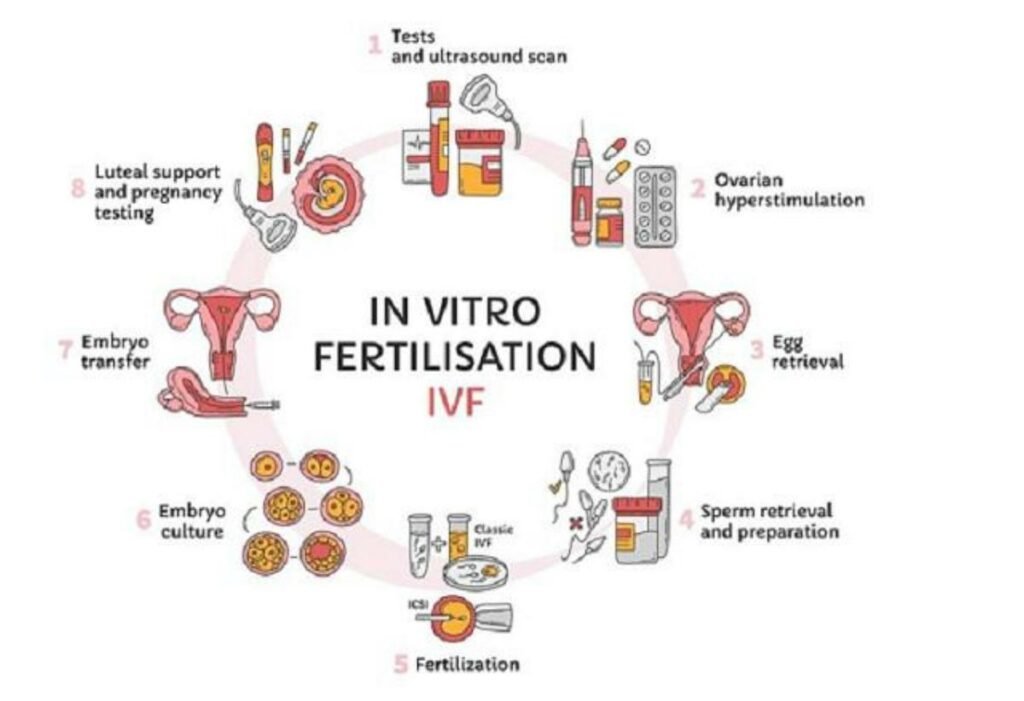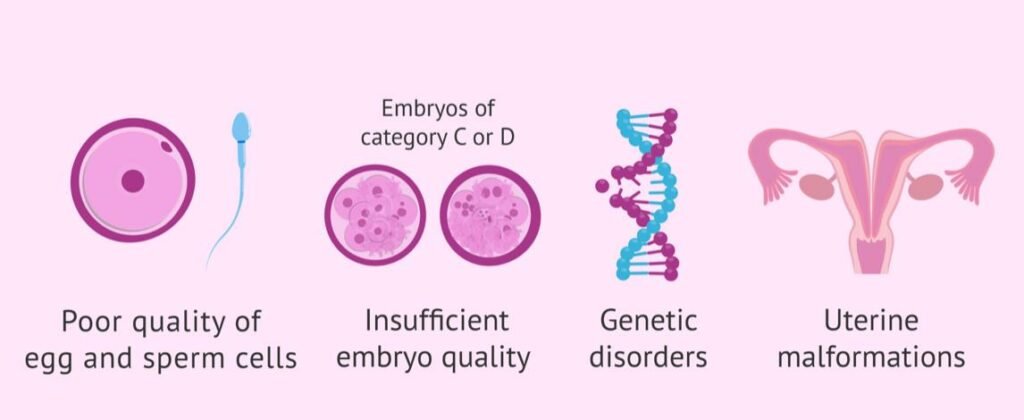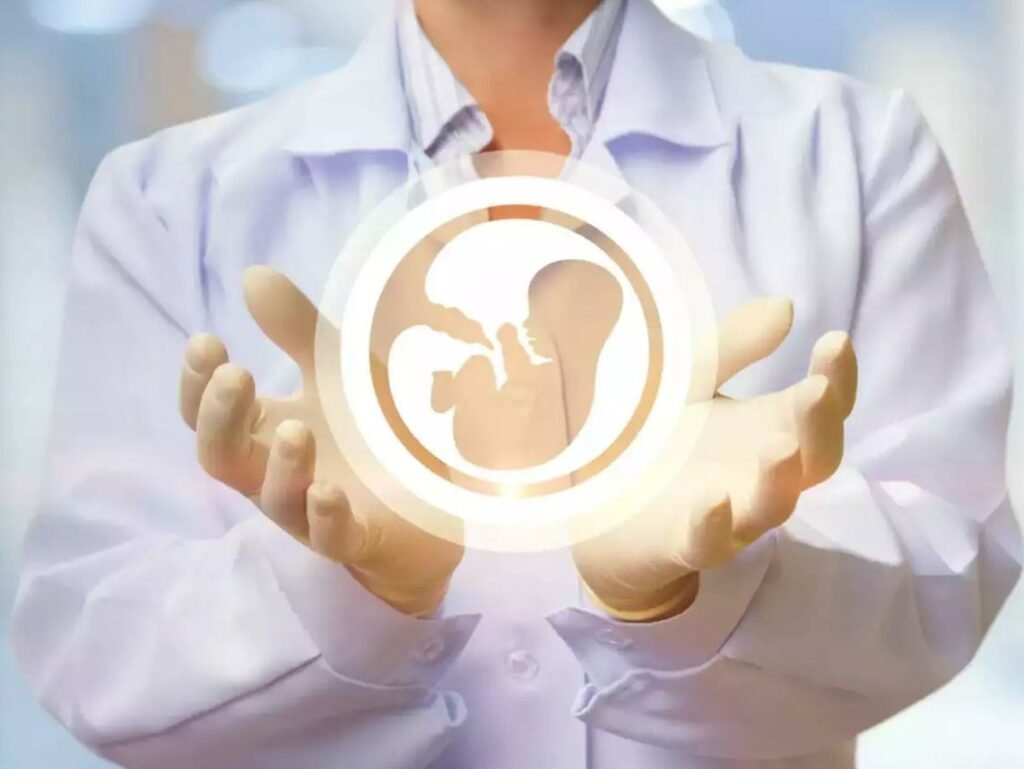The journey towards parenthood is a deep and intensely personal one. IVF treatment is a glimmer of hope for many couples and singles struggling with infertility. The domain of assisted reproductive technology has undergone a revolution thanks to IVF treatment, which offers a practical way to get past infertility problems.

But as we know, IVF is an intricate process, and to achieve results, you need an excellent IVF centre with years of experience and a high success rate. Aastha Fertility Care is one of the best fertility centers, offering the best IVF treatment in Jaipur,
But before you consult with an specialist, going through the details of the treatment and exploring the steps will help with clarity. For all those confused about what all steps are included in the IVF process, the sections in this blog below have everything for your clarity!
Navigating the IVF Stages

Stage 1- Stimulation of the Ovaries
The main step in IVF involves stimulating the ovaries. Your doctor will advise you to take injectable hormones to stimulate the ovaries’ production of eggs. By causing the ovaries to create more eggs, they will have numerous in a month.
It will help increase the likelihood of at least one embryo developing during IVF. In addition, your doctor will recommend various reproductive drugs to enhance ovarian follicle performance. Over ten days often pass during this stage before your eggs become fit for collection.
Stage 2- Retrieval of the Eggs
Egg retrieval is the second step in the IVF process. Keep in mind that egg retrieval is a simple, in-clinic process. This operation, which uses intravenous sedation, is rather straightforward. During the egg retrieval operation, a transvaginal ultrasound is also used.
The egg retrieval process typically takes no longer than twenty minutes. The eggs will be placed in a culture medium by your doctor. Later in the day, sperm will be added by lab technicians to facilitate fertilisation. You can suffer cramping after the treatment, which is entirely normal.
Stage 3- Retrieval of Sperm Cells
If you are utilising your partner’s sperm, your doctor will require a sample of semen. Additionally, you will have the choice to use donor sperm. The sperm may be collected and frozen in advance by some clinics. Your doctor may do a surgical sperm collection in complicated circumstances.
Stage 4- Fertilisation
It is the first and most crucial step in the IVF process. There are now two IVF fertilisation techniques.
- Standard Insemination
The doctor will combine healthy eggs and sperm in a petri dish for this fertilisation technique.
Inside the Cell Fertilisation
- ICSI
ICSI, also known as intracytoplasmic fertilisation, involves injecting sperm into each egg.
The medical staff will wait for at least 20 hours after mixing the sperm and egg. Before implanting the fertilised eggs, modern clinics often grow the eggs for at least a week.
Stage 5- Transfer of the Fertilised Egg
The final step in IVF is the transfer of the fertilised egg or embryo. During the embryo transfer, the doctor places the fertilised eggs within the uterus under ultrasound supervision. You can get back to your regular schedule after the embryo transfer operation.
Factors in the IVF Journey that Can Lead to IVF Failure

1. Embryo Quality: IVF success is significantly impacted by embryo quality. Despite appearing to be healthy embryos, implantation failure can occasionally occur due to the complex interplay of genetics and cellular activity.
2. Uterine Receptivity: The interaction between the uterine lining and the embryos during implantation is intricate. Successful embryo attachment might be hampered by thin uterine lining, inflammation, or hormone abnormalities.
3. Genetic Abnormalities: Embryonic genetic abnormalities frequently worsen with ageing and can cause unsuccessful implantation or early miscarriages.
4. Lifestyle Factors: Smoking, binge drinking, being overweight, and eating unhealthy foods can all have a detrimental impact on IVF results.
5. Ovarian Response: An inadequate or extreme ovarian response to stimulants may affect Egg quality and quantity.
6. Underlying Health Conditions: IVF success might be hampered by endometriosis, polycystic ovarian syndrome (PCOS), and autoimmune illnesses.
7. Implantation Window: Timing is important. The embryo may not effectively implant if it is transferred too early or too late in the cycle.
The Role Of Aastha Fertility Center In Successful IVF Process in Jaipur

The finest IVF procedure is fertility, a beacon of hope on the road to parenthood. Aastha Fertility Care offers constant assistance and a compassionate environment thanks to its wealth of knowledge, cutting-edge facilities, and highly individualised approach. The level of care provided by their doctors is uncompromised.
Aastha Fertility Care will be your continuous companion, guiding you through this life-altering journey with total care and unflinching trust if you’re considering IVF to fulfil your dream of becoming a father. Due to this, it is not only one of the top IVF treatment facilities in Jaipur but also among the best in India.
Conclusion
When selecting an IVF clinic, remember that the success rate of the procedure depends not only on the patients’ ages and medical conditions but also on the method of treatment and the expertise of the IVF specialist.
Aastha Fertility Care has a team of highly experienced doctors. They offer many other services along with IVF, making it convenient for you by offering all the services under one roof.
Connect with the IVF experts in Jaipur now to know more!


















